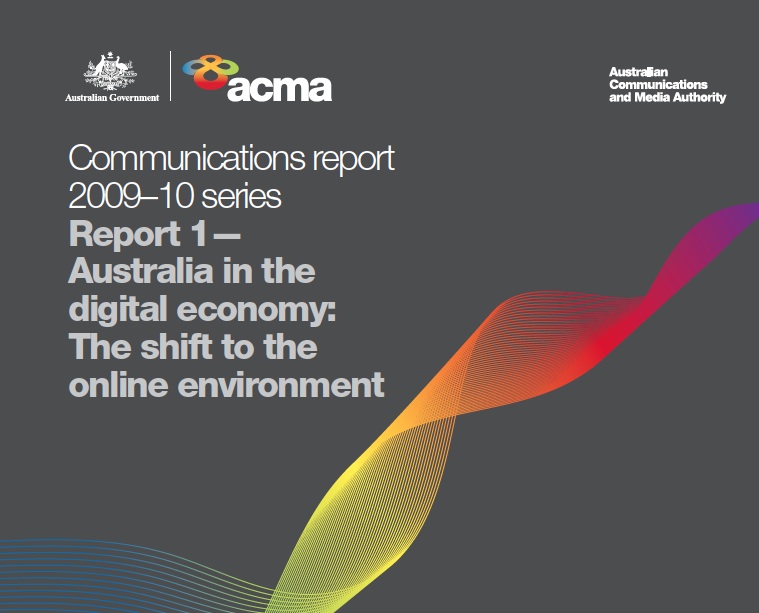New research by the ‘Australian Communications and Media Authority’ reveals Australian consumers are increasingly embracing the digital economy. In the last six months, 88% of household internet-users participated in one or more e-commerce activity, and 69% purchased at least one good or service.
The report was released on the 16th of November at the annual Communications Policy and Research Forum, held in Sydney. This is the first time the ACMA has explored the nature of Australian participation and engagement with e-commerce in any depth.
“These [figures] are suggestive of increasing consumer confidence in making online transactions”, said ACMA Chairman Chris Chapman. “The internet is empowering consumers to purchase more economically and efficiently, by making it easier to locate goods and services and often to compare costs.”
The most popular goods and services purchased by Australian consumers were: tourism goods and services (56%), tickets for events, concerts or movies (43%), and household goods (37%).
Factors that were found to influence the level and way in which consumers engaged in e commerce included age, gender, household income, level of education and employment. In general, employed consumers with higher levels of education and income were more likely to engage in e-commerce.
Broadly, the incidence of e-commerce activity was shown to decrease with age. Respondents aged 25 to 34 years had the largest proportion of online consumers, with 82% purchasing a good or service. This figure decreased in a linear fashion to 38% for those aged 65 years and above. Males were also more likely than females to have made purchases online (74% compared to 65%).
The amount Australians spent online varied widely. The majority (54%) spent less than $1,000 during the previous six months. 11% of the minority spent in excess of $5,000.
Convenience was cited as the most common reason for purchasing online (74%), as well as lower cost (38%).
For those consumers not purchasing goods online, the main reason cited was lack of trust in the internet (25%), followed by a preference for shopping the ‘old fashioned way’ (19%).
The report, titled ‘Australians in the Digital Economy: Consumer engagement with e-commerce’ is available on the ACMA website at the link below. The report defines e-commerce as: ‘a range of online transactions, such as: purchasing of goods or services, banking, sourcing government services, trading shares or paying bills’. It complements the report ‘Australia in the digital economy: The shift to the online environment’, which was released on the 11th November 2010.
DJPA

